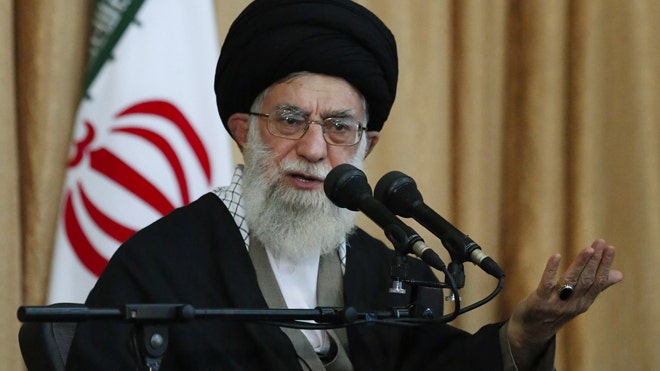Phony fatwa? Group claims Iranian anti-nuke edict cited by Obama a hoax
FoxNews.com
President Obama could be hanging his hopes for productive nuclear negotiations with Iran on a hoax, according to one Middle East-focused think tank.
On Friday, Obama cited a “fatwa,” or religious edict, from Iran’s all-powerful Supreme Leader Ali Khamenei, banning the pursuit of nuclear weapons.
“There is no such fatwa. It is a lie from the Iranians, a deception, and it is tragic that President Obama has endorsed it,” MEMRI Founder and President Yigal Carmon
- Yigal Carmon, president of Middle East Media Research Institute
“I do believe that there is a basis for a resolution [because] Iran’s Supreme Leader has issued a fatwa against the development of nuclear weapons,” Obama told reporters.
But although talk of such a fatwa has been around for at least eight years, there’s no evidence it was ever issued, according to the Middle East Media Research Institute, which flatly called the fatwa a hoax. MEMRI claims the phony fatwa is promoted by Iranian diplomats and Turkey’s Islamist prime minister, Recep Erdogan.
“There is no such fatwa. It is a lie from the Iranians, a deception, and it is tragic that President Obama has endorsed it,” MEMRI Founder and President Yigal Carmon told FoxNews.com.
In July, the Iranian website Tasnimnews, which is linked to Iran’s Islamic Revolutionary Guards Corps, published an extensive list of 493 fatwas from Khamenei dating back to 2004. None forbade the pursuit of nuclear weapons. Carmon noted that Khamenei in 2012 was asked directly about the morality of pursuing nuclear weapons, and his answer was telling.
The question asked to Khamenei was, in light of a Koran teaching that orders Muslims to “prepare against [non-Muslims] whatever you are able of power and of steeds of war by which you may terrify the enemy of Allah,” is it also “forbidden to obtain nuclear weapons, as per your ruling that their use is prohibited?”
Khamenei’s answer, according to MEMRI, was “your letter has no jurisprudential aspect. When it has a jurisprudent position, then it will be possible to answer it.”
to MEMRI, was “your letter has no jurisprudential aspect. When it has a jurisprudent position, then it will be possible to answer it.”
 to MEMRI, was “your letter has no jurisprudential aspect. When it has a jurisprudent position, then it will be possible to answer it.”
to MEMRI, was “your letter has no jurisprudential aspect. When it has a jurisprudent position, then it will be possible to answer it.”
Carmon said if a fatwa against the pursuit of nuclear weapons existed, Khamenei would have cited it.
“Wouldn’t you think he would say, ‘I given my fatwa, and it is this?’” Carmon said.
Carmon said Khamenei could never actually issue such a fatwa unless he intended to see it enforced. But by letting his diplomats make the claim, Iran can appear more reasonable to the West, according to Carmon.
But University of Michigan history professor Juan Cole, an expert on the Middle East and author of “Engaging the Muslim World,” wrote Monday on his website that the fatwa was reported by the state-run IRNA news agency in 2005, which he said would not have been done without Khamenei’s knowledge and blessing.
White House officials declined to comment.
The fatwa’s existence appears to date back to 2005, when it was cited by an Iranian diplomat. In a 2012 Washington Post op-ed by Foreign Minister Ali Akbar Salehi, it was cited again, without a link or other documentation.
In April 2012, then-Secretary of State Hillary Clinton, speaking at a NATO conference, cited the supposed fatwa, but with a degree of skepticism.
“I’ve discussed with a number of experts and religious scholars… If it is indeed a statement of principle, of values, then it is a starting point for being operationalized, which means that it serves as the entryway into a negotiation,” she said.

No comments:
Post a Comment